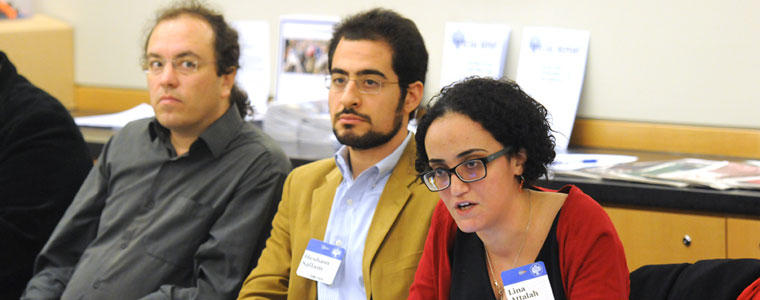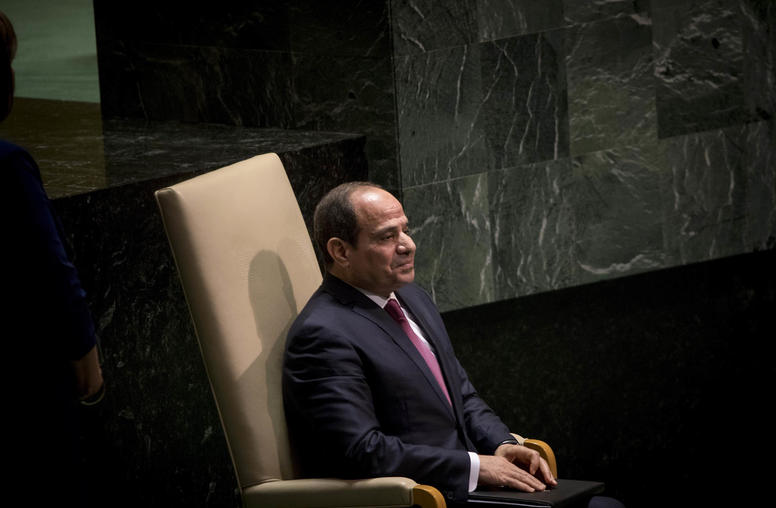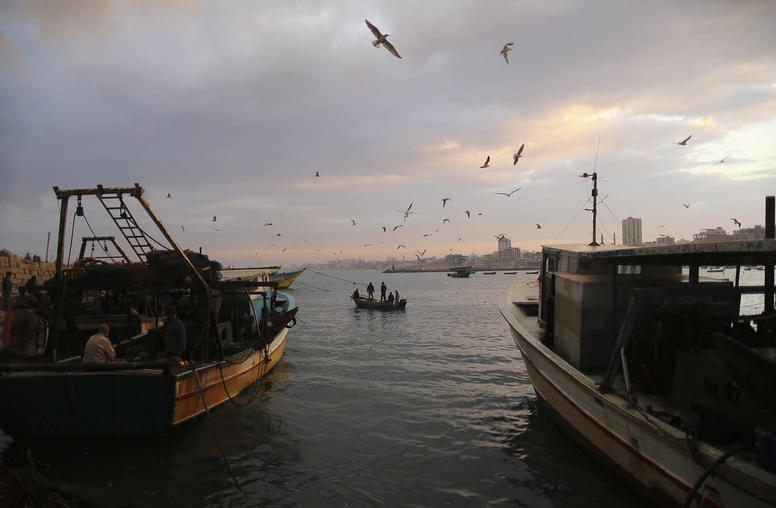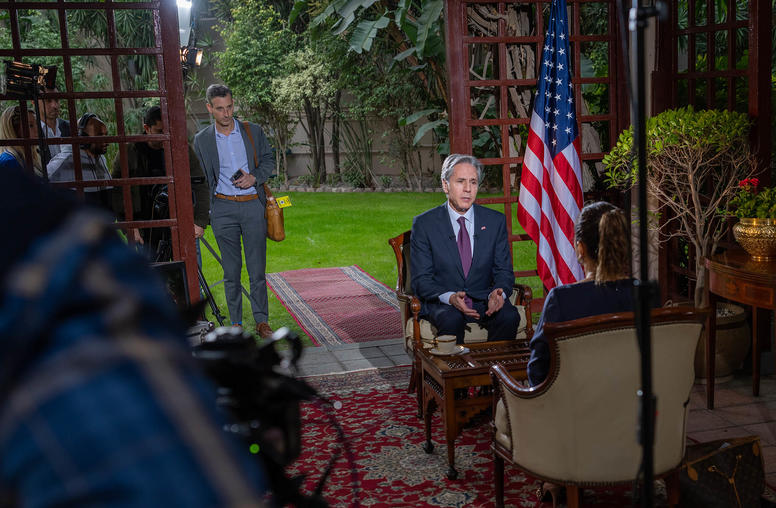Egypt’s 'Jon Stewart' and Media Are Hounded by Politics, Economics
The arrest of a popular TV satirist is among the latest government measures and economic conditions that one newspaper editor says threaten to strangle the newfound independence of Egypt’s media. Lina Attalah, the chief editor of Egypt Independent briefed an audience at USIP on factors hampering freedom of expression in her country.

The arrest of “the Jon Stewart of Egypt,” a warrant issued for a blogger, and media restrictions in a new constitution are just the latest in a cascade of government measures and economic conditions that one newspaper editor says threaten to strangle the newfound independence of Egypt’s media.
Lina Attalah, the chief editor of Egypt Independent, an English-language newspaper that publishes online and in a weekly print edition, briefed an audience at USIP on April 3 on the political and economic factors hampering the successful development of freedom of expression in her country under President Mohamed Morsi.
“These examples reflect a return to the use of the legal apparatuses as a main tool of oppression by the regime, which was a common tactic under Mubarak’s regime,” Attalah said. The risk extends beyond media, she said. “This is basically a threat to anyone engaging in any form of contentious politics in Egypt right now.”
Satirist Bassem Youssef, whose television talk show often is compared with American comedian Jon Stewart’s “The Daily Show,” was among critics of the government arrested last week. And this week, the country’s authority that regulates private satellite channels threatened the channel that hosts Youssef’s show with closure if he doesn’t tone down his language, Attalah said.
The case is spurring offshoots as well. A consultant for the New York-based media freedom group Committee to Protect Journalists was summoned for an apparent investigation into comments she made that were critical of the Youssef prosecution.
The series of summonses look like coordinated moves by a public prosecutor appointed a few months ago by Morsi, to the dismay of human rights advocates.
“He is moving certain cases that are in line with Morsi’s discourse against the opposition,” and delaying cases that don’t favor the president or his allies, said Attalah, whose publication is the sister paper of the Arabic-language daily Al-Masry Al-Youm. “The current escalations against media freedoms and freedoms in general in Egypt give us legitimate concern over the state of freedom of expression in the country.”
Officials in Morsi’s office have said he has nothing to do with the prosecutions and that they are the result of complaints from citizens as the law allows.
At a broader level, the new constitution adopted after a public referendum earlier this year has several “extremely detrimental” clauses for any prospects of media freedom in Egypt, Attalah said. She cited Article 48, saying it limits media freedom by subjecting it to considerations such as the protection of state and society, national security and “public duties.” Article 215 establishes a National Media Council to preserve “societal principles and constructive values.” Article 49 imposes legal restrictions not only on radio and television but also on digital media, effectively placing limits on the use of the Internet, she said.
Attalah speculates that the government and its political allies may be particularly interested in controlling existing media because the Muslim Brotherhood hasn’t been able to successfully develop and advance its own outlets.
Recent comments by Morsi a week earlier at a women’s conference in Cairo also have raised alarms, Attalah said. She cited quotes such as “The criminals, insiders and conspirators – mark my words, no one will escape punishment,” and “if I have to take necessary measures to protect the security of the state, I will and I’m afraid to say that I’m about to do so.” Addressing the media in particular, “he warned them of imminent punishment, saying that if you are not careful, I will do that very soon, sooner than you can imagine.”
Economic conditions also threaten news organizations, including the increasing concentration of media in a few hands, state control of printing and distribution, the government’s monopoly over satellite access and major internet service providers being controlled by the government. As is typical in transitional countries, most newspapers haven’t developed a reliable business model and are dependent on sponsors and investors for support. Add to that Egypt’s struggling economy, raising revenue is doubly difficult there.
Egypt Independent, established in 2009, is struggling too, even though it aims to provide more context and a fuller picture than most western English-language media do in reporting about the Arab Spring, Attalah said.
“Today we are under the threat of closure due to the owner’s lack of interest in continuing to subsidize the newspaper, for mostly economic reasons,” she said. “We are working on a survival campaign through a series of measures, including a subscription drive” and development of a business model.
In addition to basic survival, news media also need to improve their coverage, especially political coverage, Attalah said.
“A way out for the privately owned media is to actually be less fixated on the religious-secular divide and talk about issues of political and economic performance of the Brotherhood as the ruling elite,” she said. “So long as this is not happening, the Brotherhood will always use this argument – that these are counter-revolutionary forces that are trying to unsettle the democratically established system and that’s why we have to protect ourselves against them.”
What approaches have you seen as effective in supporting independent media in transitional countries? Tell us your thoughts by submitting a comment below.
Viola Gienger is a senior writer at USIP.



